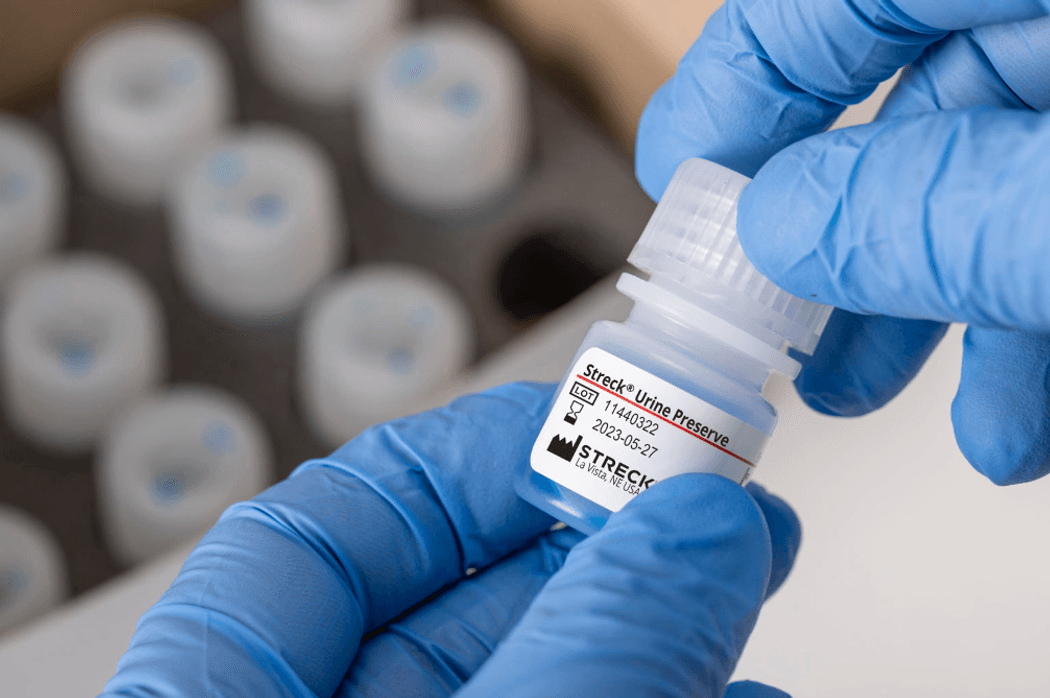Urine sampling is a simple, non-invasive way to assess various human health parameters. As a waste product of metabolism, urine carries a wide range of molecular signatures that enable tracking of health and disease. It is also a rich source of cellular material from exfoliated urinary tract cells and blood that is filtered through the kidneys.

Streck® Urine Preserve is a liquid reagent that stabilizes urinary nucleic acids, helping researchers improve downstream testing workflows and is For Research Use Only. Not for use in diagnostic procedures.
Streck®
Among this material is DNA released during the natural breakdown of cells through apoptosis or necrosis. Urinary cell-free DNA (cfDNA) is a valuable source of nucleic acids for developing non-invasive tests. For example, stabilized cfDNA is amenable to quantitative polymerase chain reaction (qPCR) and droplet digital polymerase chain reaction (ddPCR) analyses for clinically relevant research related to the diagnostic and prognostic value of circulating fetal and tumor DNA.
However, one of the major impediments that researchers face when analyzing urinary cfDNA is its characteristic instability during room temperature sample processing, transport, and storage. As a result, scientists seek novel, straightforward solutions for stabilizing urinary nucleic acids to improve sample quality, diagnostic test development, and data reliability.
One such approach is using Streck® Urine Preserve, a liquid reagent that comes ready to add to collected urine samples. Streck® Urine Preserve mitigates cell lysis to prevent cellular contamination and reduces the breakdown of nucleic acids by inhibiting nuclease activity. By stabilizing nucleic acids for up to seven days at temperatures between 6-37°C, this innovative approach provides researchers with an alternative to resource-heavy cold chain transport and storage and the demands of immediate specimen processing.
Learn more about improving the stabilization of urinary nucleic acids.

